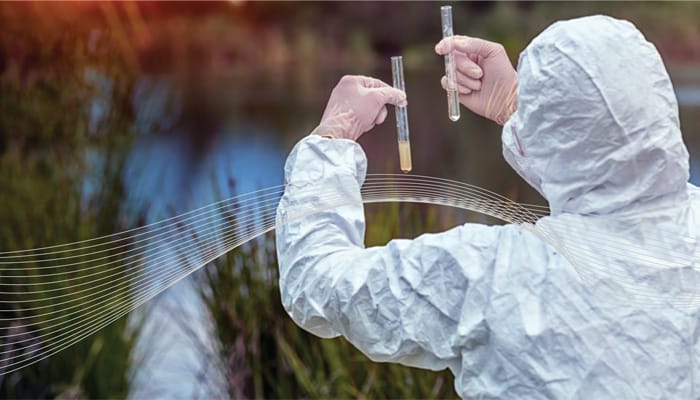Heightened consumer awareness, industry initiatives such as ZDHC (Zero Discharge of Hazardous Chemicals) or the Greenpeace Detox campaign: They all pose new challenges for brands, retailers and manufacturers. The OEKOTEX® Association together with Hohenstein as one of its founding members has developed a comprehensive product portfolio to provide everyone involved in the textile value creation chain with the best possible security and conformity regarding the use of chemicals. This provides transparent testing and certification systems, which build on and go hand-in-hand with one another.
The aim of the OEKO-TEX® product family is not only the fulfilment of currently required standards and limit values, but also the efficient path towards this — individually for each company. Four OEKO-TEX® modules are available with this aim in mind:
- ECO PASSPORT by OEKO-TEX®: Independent testing and certification for textile chemicals, colourants and finishing agents.
- DETOX TO ZERO by OEKO-TEX®: A status report to evaluate established chemicals management and waste water and sludge quality, with the aim of compliance with the Greenpeace Detox campaign.
- STeP by OEKO-TEX®: Independent certification of production facilities with holistic analysis and evaluation of all relevant areas such as environmental management, environmental performance, social responsibility, chemicals and quality management, as well as occupational health and safety.
- STANDARD 100 by OEKO-TEX®: An independent certification system and label for textiles and accessories at any production level, tested for harmful substances.
From input of the raw material through production and output to brands and consumers: All channels can be seamlessly evaluated. With OEKO-TEX® and Hohenstein as a partner, every company can find its system solution.
Using Tested Chemicals
ECO PASSPORT by OEKO-TEX® tests chemicals, dyes and auxiliaries for harmful substances and environmental parameters. All limit values for ECO PASSPORT meet or exceed the requirements of the current ZDHC MRSL. A three-stage verification process evaluates whether chemicals are suitable for environmentally-friendly production processes and use in textiles according to STANDARD 100 by OEKO TEX®. The certification process includes comparison with the OEKO-TEX® RSL and MRSL, conducting analytical laboratory tests for possible contaminations and an onsite verification. During the company visit, Hohenstein looks at both environmental management and the product responsibility measures. ECO PASSPORT is closely linked to the STeP and STANDARD 100 OEKO-TEX® certification systems.
Providers of textile chemicals can enter their ECO PASSPORT certified products in the OEKO-TEX® Buying Guide, free of charge. Textile manufacturers use the Buying Guide to find and source system-compliant chemicals. Certification by Hohenstein protects confidential product data while simultaneously facilitating the transparency required by the market.
Implementing Detox Objectives
DETOX TO ZERO by OEKO-TEX® enables textile companies to check the status of their chemicals management and the quality of their waste water and sludge, and to use independent verification to provide credible documentation for external stakeholders. DETOX TO ZERO provides an annual status report that lists the chemicals used and assesses the handling of waste and waste water (with comprehensive MRSL screening, for example), as well as environmental protection measures. DETOX TO ZERO provides production facilities and their customers with a tool for continuous improvement, to reduce the amounts of harmful substances in the production process. The status report shows those companies that have pledged to meet the Detox objective by 2020 exactly where they stand regarding handling of chemicals along with specific suggestions for further implementation of the Detox objectives.
Safeguarding with Output Control
Product certification in accordance with STANDARD 100 by OEKO-TEX® helps companies stay ahead of worldwide legal regulations and industry and consumer demands. Annex 6 for the Standard contains tighter criteria and limit values, which have been specifically developed for companies that seriously intend to meet the Detox campaign targets.






















